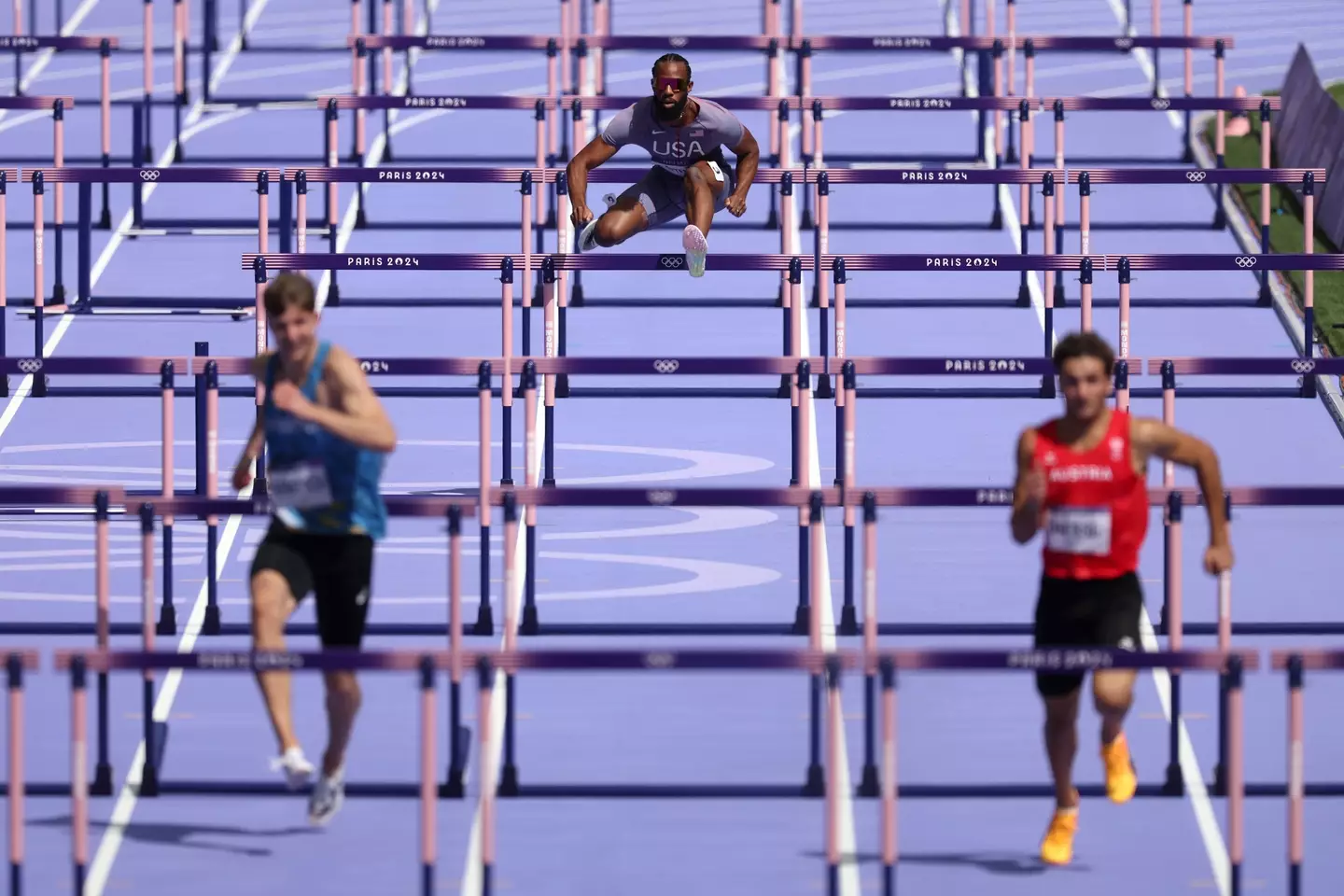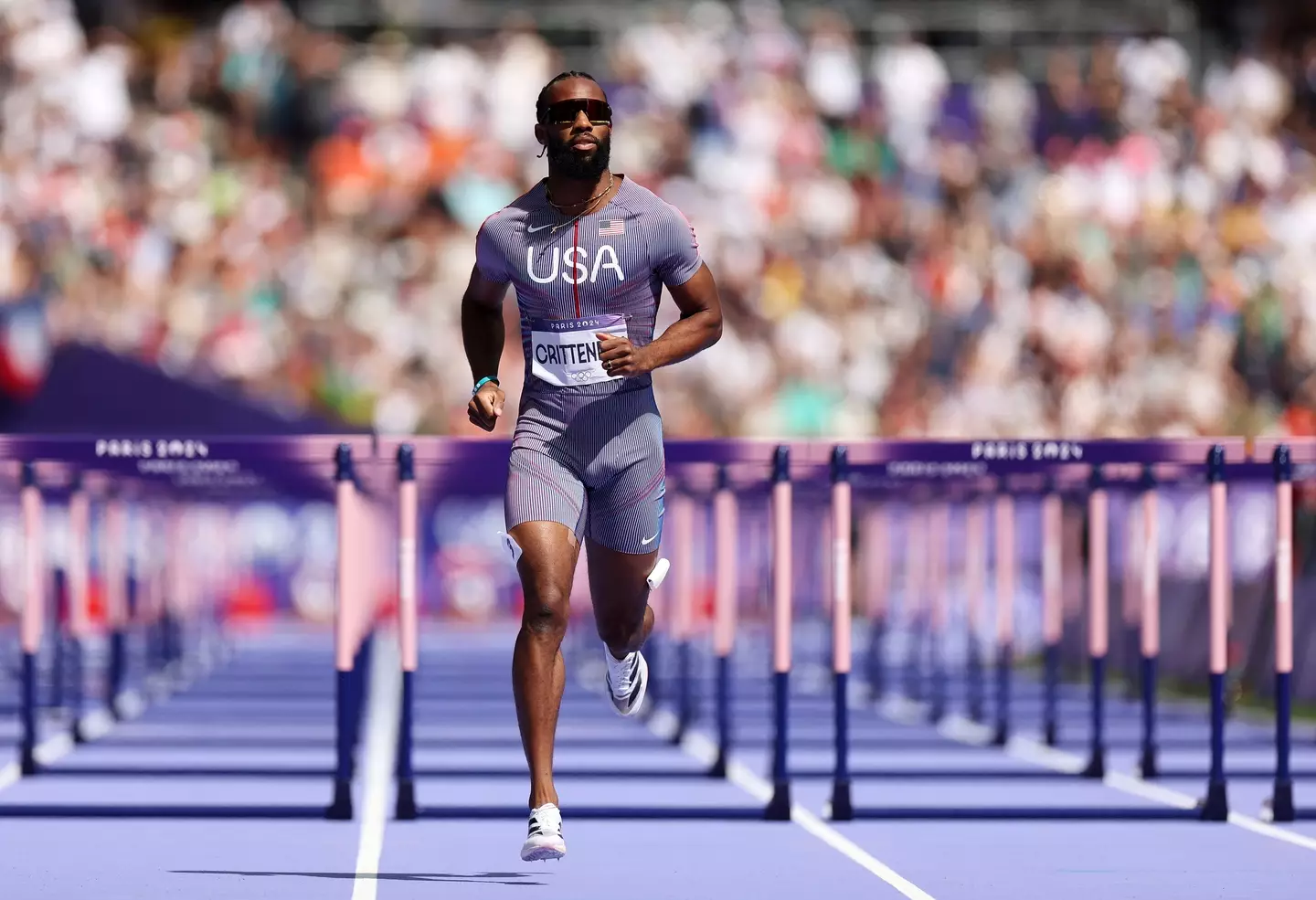
When you think of racing in the Olympics you would assume that the winner is generally the one who comes first.
But a new rule which applies to some track events means that one athlete came dead last in the 110m hurdles in the first round, but could still go on to claim the gold.
Viewers' curiosity was piqued when Team USA athlete Freddie Crittenden lined up for the 110 metre hurdles on Sunday.

Advert
After setting off for the first qualifying round the athlete then coasted down the track and came in last, some five seconds behind the leader.
You would be forgiven for wondering what in the world happened, why work so hard only to seemingly throw it all away?
In fact, Crittenden was far from giving up and had a very good strategic reason for holding back in the first round.
It's because of a new rule which has been introduced in many track events, including the 110m hurdles.
What does the repechage rule mean?
The rule of 'repechage' effectively gives athletes a second chance to qualify for the next round.
In Crittenden's case, he will be able to face the 110m hurdles again on Tuesday (6 August).
Surely though you wouldn't want to risk it? Well, that depends.
Crittenden explained that he had an issue which could affect his performance.
He said: “They [medics] said it's not an injury, just a lack of muscle activation, and I've been feeling some pain."
At this level even the smallest thing could impact someone's performance, and if you overdo it in an earlier round you could scupper your chances of winning in the final.
But as long as he made it over the line, Crittenden would be able to go for the repechage.
He said: "I thought I'd come here, take it easy and thank god there was a repechage round, I had to come here, get through the line, I can look forward to the repechage on Tuesday, get top six and make it to the semi-final on the next day."

He added: “I wanted to get here and make sure it didn't feel any worse and make it through and give it everything I've got on Tuesday."
The athlete wanted to give his body time to reset and recover so that he would be able to give it his best shot without worrying about making things worse.
Even Olympic athletes need to take a break to be at the their best sometimes!
He said: "It was an intentional choice," adding: "I decided to just, not make an emotional choice, make a smart choice, give my body time to recover a little bit from being aggravated."
The athlete added that if there hadn't been the option of the repechage round he absolutely would have gone 'balls to the wall, run as hard as I could'.
The next race is set for Tuesday, so only time will tell if Crittenden's repechage gambit pays off.
Which events include a repechage round?
At Paris 2024, the track events which have these second chance races for athletes are as follows:
- 200m (M,W)
- 400m (M,W)
- 800m (M,W)
- 1500m (M,W)
- 100mH (W)
- 110mH (M)
- 400mH (M,W)
The full remaining schedule for the repechage round is as follows:
Monday
- Morning session: Women’s 200m repechage
- Morning session: Women’s 400m hurdles repechage
- Morning session: Men’s 400m repechage
Tuesday
- Morning session: Women’s 400m repechage
- Morning session: Men’s 110m hurdles repechage
- Morning session: Men’s 400m hurdles repechage
- Morning session: Men’s 200m repechage
Wednesday
- Morning session: Women’s 1500m repechage
Thursday
- Morning session: Women’s 100m hurdles repechage
- Morning session: Men’s 800m repechage
